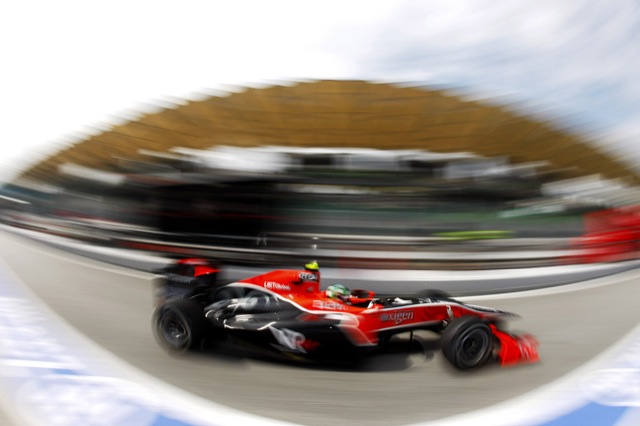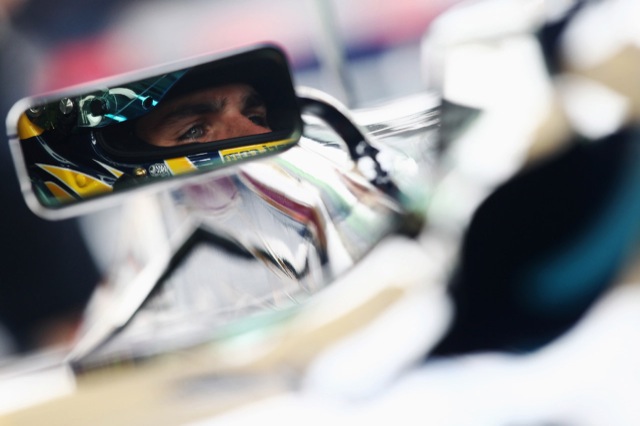The second most talked about decision made yesterday at the World Motor Sport Council meeting was the voluntary capping of the team’s budgets. The idea of budget capping is high on Max Mosley’s agenda as he tries to bring the cost of racing in Formula One down. By reducing costs, the sport will hopefully become more stable, especially in the current economic climate, and will also entice new teams to enter. However, for now the budget caps are voluntary, although they do come with added bonuses…
For the 2010 season, a cap of £30m will be placed on those teams who sign up to the proposal, which will for now remain voluntary. The £30m will include driver salaries, team personnel salaries including the team principal, and just about everything else. In fact, the best way to look at what the budget entails is to look at what isn’t included. Currently, fines imposed by the FIA will not be included. Anything provided free to the teams or at a subsidised rate will be audited and a value placed on it by the FIA. This will be included in the £30m budget. However, parts that are standardised (Bridgestone tyres for example) will not.
In order to entice teams to sign up for this, the FIA has said that certain benefits will be rewarded. These benefits look quite intriguing, and primarily concern the freedom of technical development. Because a budget cap will obviously mean that the competitive nature of those signed-up teams may suffer in comparison to those who may remain cap-free, the FIA will ensure that the teams who do cap their expendiature will remain equal.
In order to accomplish this, the FIA has said that the engine rev limit will be abolished, testing, material and wind tunnel usage limits will also be freed up. A standard but modified under body will be issued, as well as no homologation requirements and no restriction on the number or even type of updates. The development freeze on engines will also be lifted.
So what does this mean to the teams who may be thinking of signing up for this? Well, currently, the teams have unlimited budgets, but there are restrictions on what they can and cannot do, as outlined by the technical regulations. The engines for example, are set and cannot be improved upon, no matter how much money a team may have. However, should a squad choose to limit their budget, they could set aside a certain amount to develop and enhance their engine. This is obviously enticing to the manufacturers, who use their own power plants. Quite how this would work if Toyota remain cap-free, but Williams sign up is yet to be understood. Obviously, this also applies to any other team buying an engine from a competing manufacturer.
Another area that will really entice teams is the freeing up of the wind tunnels and testing. Already this year we have seen how the testing limit has impacted the development of the cars, with the weather playing havoc since January. Rain in Portugal and sand in Bahrain has meant that the first proper running didn’t happen until last week in Barcelona, just three weeks prior to the season start.
The budget cap is an interesting idea, and some teams have expressed a wish to see this through, Williams being just one who are all for it. However, as pointed out, there are complications as to exactly how it will work. Undoubtedly though, it is the easiest and quickest way to slash spending in the sport without the need to standardise many of the key components that make Formula One such a technical masterpiece for the world to enjoy, watch and follow.
What is your opinion on capping the budgets? Will it work? Will any team actually sign up for it? Will we end up in a Renault-type scenario (the engine freeze fiasco) where one of the capped teams starts complaining that they are falling behind in competitiveness because of the lack of ensuring all remains as equal as possible? The comments are open, so have you say below.



















Does anyone have confidence in the FIA has to run two sets of technical regulations instead of one, equalise the two, and effectively police budget caps?
Given that they’re just running one set of technical regulations at the moment, and we’ve got the usual rows over what is and isn’t legal (diffusers) with Bernie Ecclestone even admitting today it’s likely the winner of the Australian Grand Prix will be subject to a protest, I have zero confidence in this proposal being realistic.
The points thing was always going to get the biggest response from the fans, but if this is serious it could be much more damaging.
I agree Keith- even if they could enfore them, the constant tinkering with the rules must be both annoying to the teams and confusing to the fans. I agree with the need for F1 to reduce costs, but there surely must be a better fashion than this.
As many of you know, I live in America and have grown up worshipping teams in several U.S. sporting leagues (NFL first and foremost) and I have seen how well the “salary caps” work towards a fair and level playing field in those leagues. On that same note, I never have thought a budget cap would work in F1 in the short time I have been following the sport. The sports leagues over here use it well because it prevents the big-budget teams from stockpiling high-priced talent. The system dose allow small-budget teams to compete quite well, but F1 is a completely different animal. In other sports, there is obviously no R&D factor- the cap just relates to player salaries.
If the FIA wanted to impost a total cap on driver’s salaries, it woulden’t work because the best drivers would still go for Ferrari and the like. But an overall cap is even more crazy- it will be nearly impossible to control, and sooner or later the big-money people behind the teams (such as car companies) are going to complain when their F1-related R&D programs aren’t as comprehensive anymore.
All in all, great idea, but completely impractical.
I disagree. This is that F1 needs: all the technology, but not the ridiculous costs. Remember, the largest cost is development. Can you imagine the creativity that we would see if there were fewer regulations concerning the dimensions, materials, etc. in the cars, and more opportunities for the engineers to think way outside the box? Remember, F1 bleeds down into your road cars, so let’s not stifle highly advanced technologies. Let’s embrace more opportunities for the lesser teams to use ingenuity instead of $$$ to go fast.
I reckon everyone except Ferrari will sign up for it and stick a coach and horses through the cap (apart from the teams which cannot raise enough money to break the rules). Ferrari will complain and the cap will be either scrapped or made so complicated that a scrapping would have made more sense.
[…] the change in the points structure that was initially planned for 2009 but then put back until 2010 was the introduction of the optional budget cap. The cap was designed to allow smaller teams to compete with the larger teams, as those who […]
[…] and their involvement in it. Since the FIA announced the idea, the plan has undergone some tweaking, the original cap being set at £30m and including everything bar the kitchen sink (erm, motorhome). Now set at £40m, and not including […]
[…] The Future Of Formula One – Capping The Budgets Tags: 2010, Budget Cap, FIA, Flavio Briatore, Max Mosley, Renault […]